Found in a well at a Spanish monastery, this 1,900-year-old votive altar was dedicated to a mysterious Basque deity known as Larrahe.
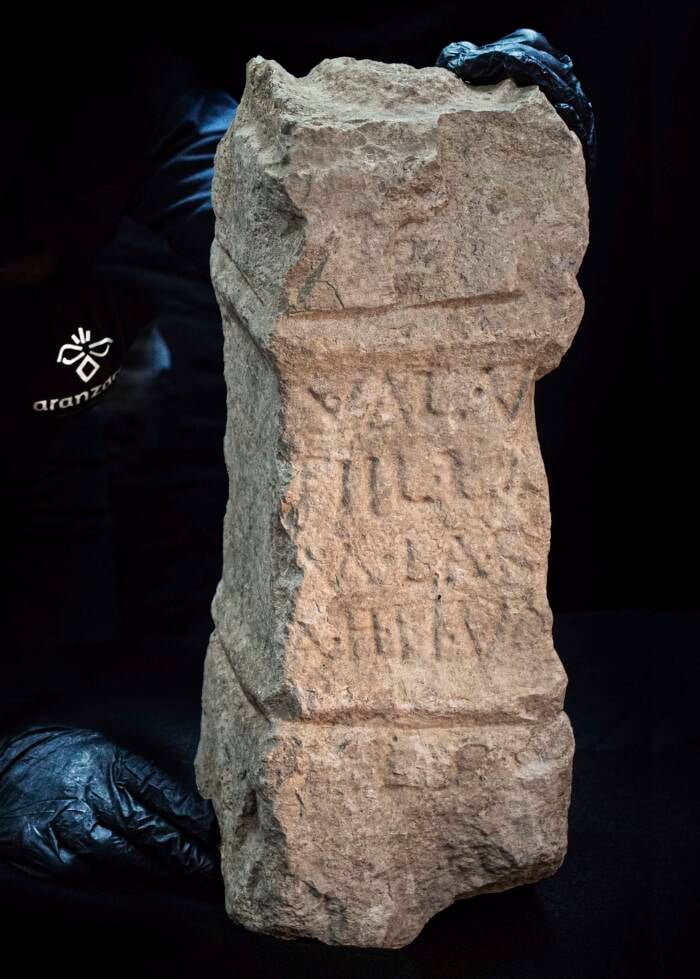
Aranzadi Science SocietyThe Basque votive altar dedicated to the deity Larrahe.
While excavating the ruins of an 11th-century monastery atop Mount Arriaundi in Larunbe, Spain, archaeologists recently uncovered something remarkable. At the bottom of a medieval well, researchers came across a rectangular stone bearing a Latin inscription — and it turned out to be a 1,900-year-old altar dedicated to a Basque deity known as Larrahe.
This artifact is one of just four altars dedicated to Larrahe ever found within the Basque regions. The new altar, however, is the only one ever to be recovered during an archaeological excavation.
Now, this discovery is providing new insights into the early Basque people and their cultural beliefs.
Inscriptions On The Altar Reveal A Dedication Of Gratitude To Larrahe
According to a press statement from the Aranzadi Science Society, the Basque altar was discovered during an excavation in 2022, at the bottom of a well at the medieval Doneztebe monastery. The small votive altar dates back to the first century C.E., and features a dedication written by a woman known as Valeria Vitella to the deity Larrahe.
In ancient Rome, these altars would be stood upright. There, worshippers would burn incense or pour wine over the stone as an offering.
Researchers noted that this discovery represents a rare blend of both Roman and Basque beliefs, providing a glimpse into how the Basques’ distinct culture endured even during the Roman era.
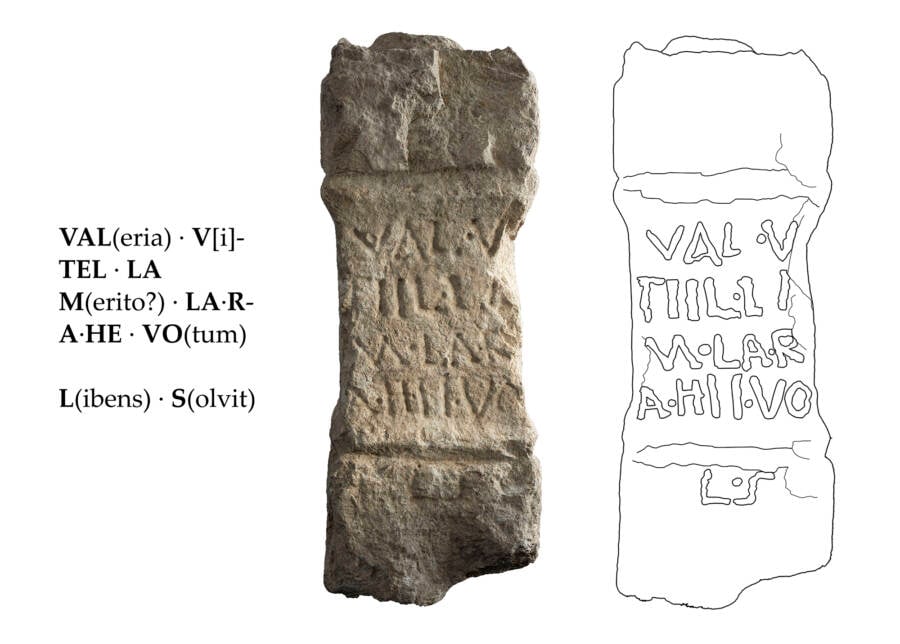
Aranzadi Science SocietyThe inscription reads: “Valeria Vitella fulfills her vow to Larrahe freely and deservedly.”
Little is known about Larrahe, as few other examples of worship to the deity have been discovered. “The name of this indigenous god or goddess is only attested in three other altars from the Basque territory,” researchers explained in the statement. However, this altar was found much further north than previous dedications to Larrahe, thus expanding the territorial domain of the deity’s worship.
The altar predates the monastery by about 1,000 years, and researchers don’t know how it ended up in the well. It is unclear whether it was purposefully placed there at the time of the well’s construction, or if it was thrown in at a later date.
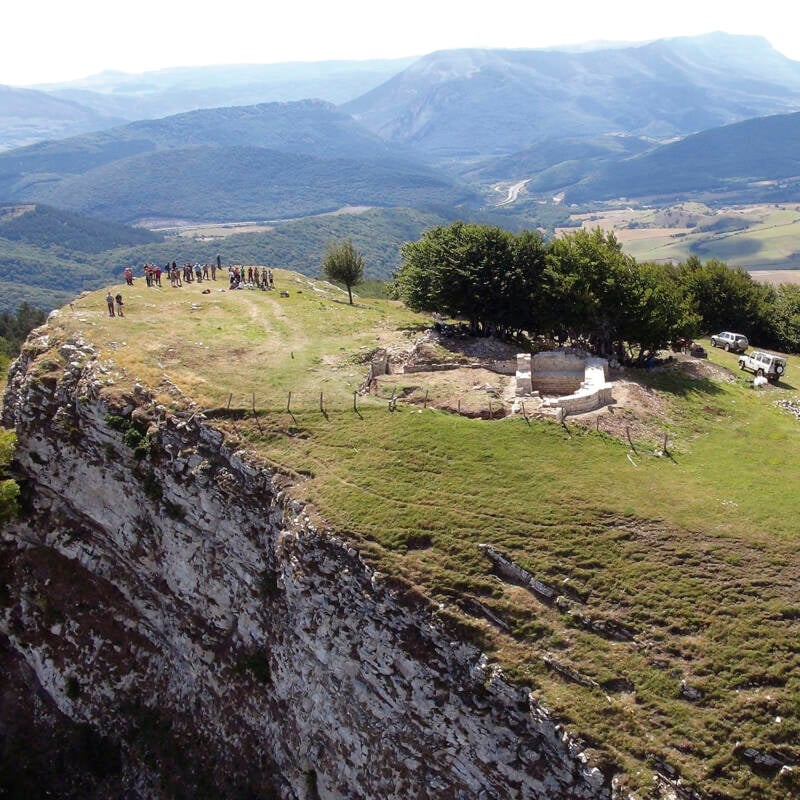
Aranzadi Science SocietyAn aerial view of the Arriaundi site.
“Arriaundi constitutes an important archaeological site, since it allows us to learn about the evolution of a cultural enclave with various phases ranging from the Roman era, through Late Antiquity, and continuing practically throughout the Middle Ages to the Modern Age,” the Aranzadi Science Society said in the statement.
Who Were The Ancient Basques?
The Basques are an Indigenous ethnic group primarily inhabiting the Basque Country, an area spanning parts of northeastern Spain and southwestern France. They are notable for their language, Euskara — an isolated language with no known linguistic relatives.
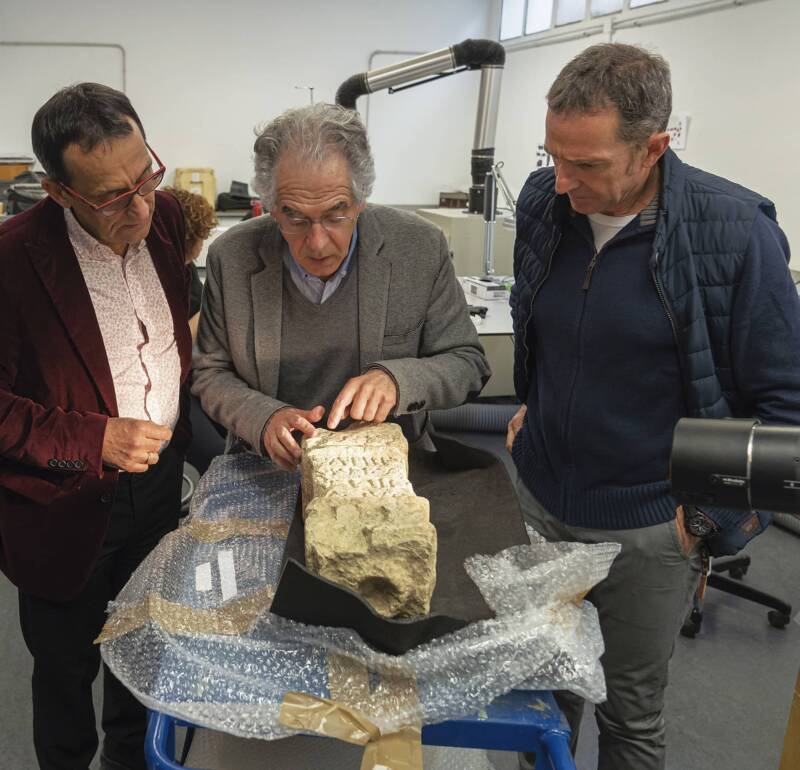
Juantxo Egaña/Aranzadi Science SocietyResearchers examining the Basque votive altar’s inscription.
Considered one of Europe’s oldest cultures, the Basque people have origins predating the arrival of Indo-European peoples to the region. They have maintained a strong and distinct cultural identity, including unique traditions, music, dance, sports, and cuisine.
Throughout history, Basque regions have often maintained varying degrees of political autonomy. Known for their seafaring skills, particularly in whaling and fishing, Basques have had a significant impact in areas such as politics, sports, and the arts, despite being a relatively small population. The Basque people and their culture continue to be an important part of both Spanish and French society while maintaining their distinct identity.
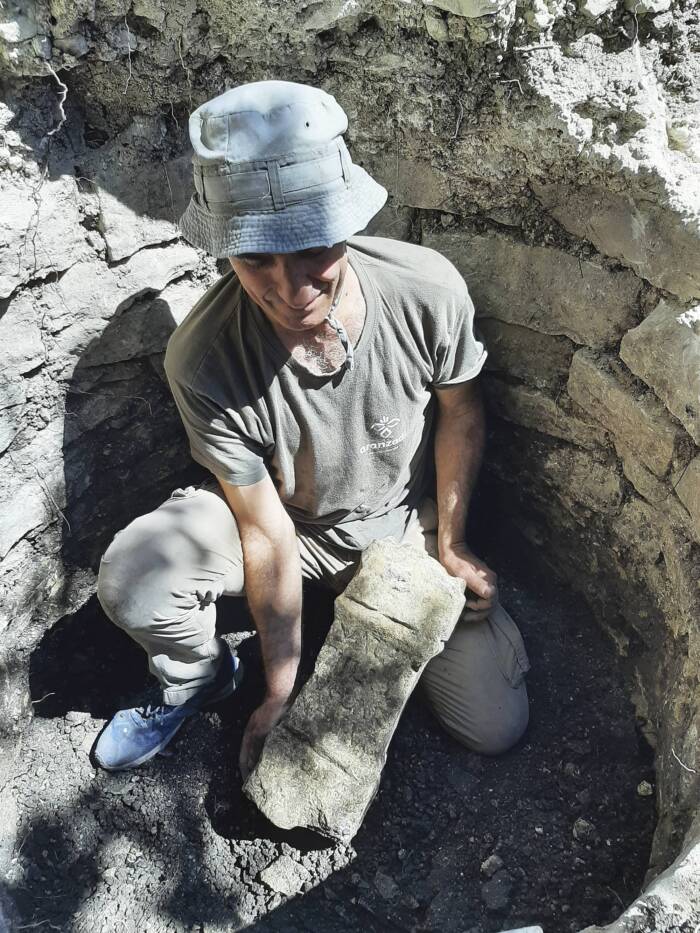
Juantxo Egaña/Aranzadi Science SocietyA member of the archaeological team holding the altar in the well.
Originally, the Basques practiced a form of animistic paganism, believing in a nature goddess called Mari and other spirits and deities. Christianity began to spread in the region around the fourth century C.E., gradually becoming the dominant religion by the Middle Ages.
Much about the ancient pagan Basque religion remains a mystery today, especially when it comes to deities such as Larrahe. However, with each new discovery, a clearer picture starts to take shape.
After reading about this Basque votive altar, read about history’s seven deadliest witch trials — including one that took place in the Basque region. Or, for more from Spain, learn about the country’s “ugly” king, Charles II.





